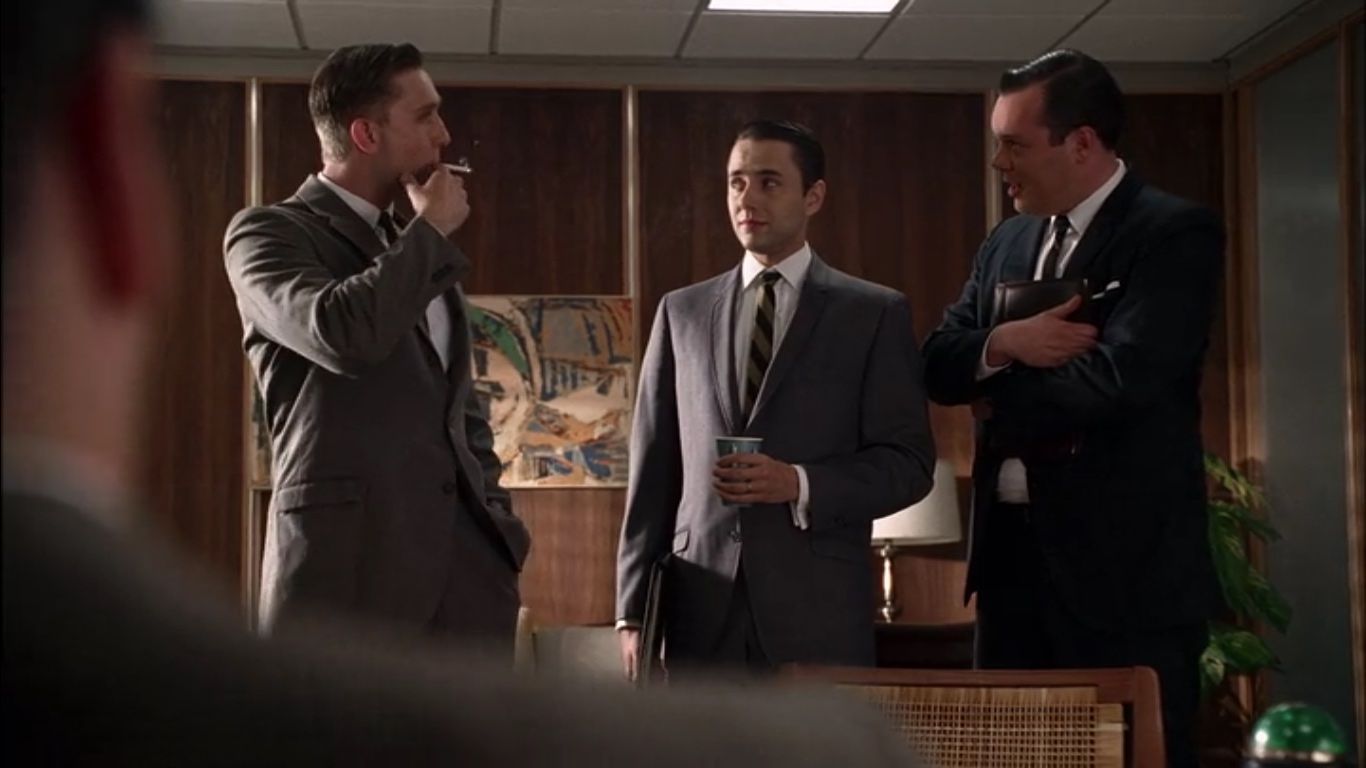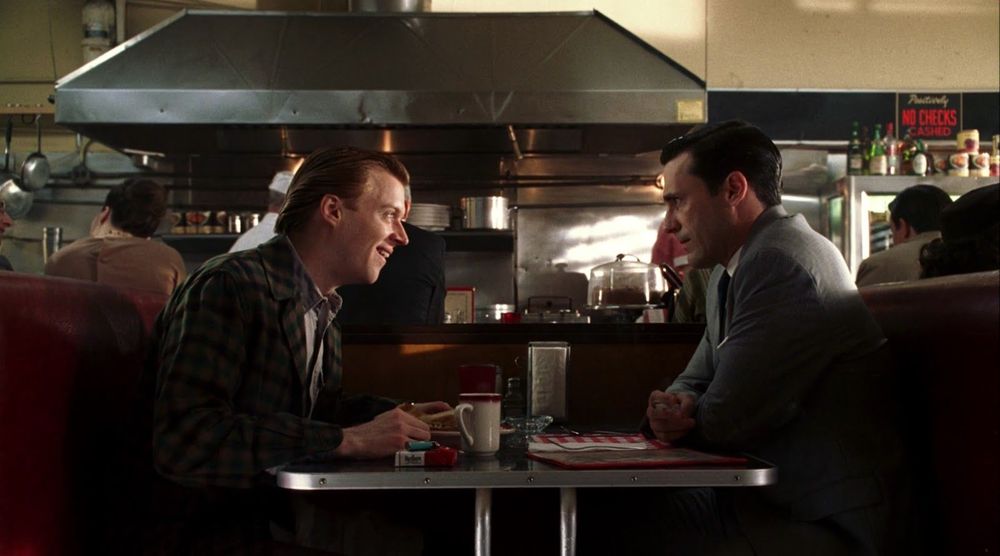Mad Men S1E5 — 5G
Each Monday we watch an episode of Mad Men (available on Amazon Prime) and put together notes on what we can learn from it about running agencies. Read an introduction to this blog series explaining more, and then follow our notes below for Episode 5…
Series 1, Episode 5 is all about the boundaries that people instinctively create around themselves, and their reactions when those boundaries are crossed. It's about the boundaries between the different parts of Don's life that he's carefully compartmentalised, and the boundaries between silos in the agency.
As the episode opens, the Sterling Cooper agency has won an award. Roger Sterling, who heads up the Accounts department, got to make the acceptance speech, which irks Don, as if Accounts are taking credit. Don, though, gets the credit in the trade press, including his photo.
In the office during an account meeting, Don has an idea they all like and one of his creative colleagues says “That’s why he won the award.” Pete, an account manager, laughs and says “Accounts won the award.” Rather than be happy that the agency won the award, the two silos of Accounts and Creative are vying for who won it for the agency.
One of the account managers, Ken Cosgrove, reveals he's had a short story published in The Atlantic monthly magazine, which is a big deal. Paul Kinsey, a copywriter, is astonished: “You? You wrote a story?” Ken says he's also written novels, which makes Paul even more astonished. Ken explains the plots. Paul says “Those don't even sound stupid!” He's put out that an account manager can write, because that feels like he's transgressing boundaries, stepping on his turf.
Later in an agency meeting Paul teases Ken, asking if he wants to take over the copywriting for an account now he's a writer. During the meeting, Don is called out to a strange visitor at the front desk who calls him by a different name, Dick. Don tells him he's mistaken him for someone else, and shoes him out the door.

Ken's colleagues in the Accounts department are put out that he's crossed this boundary between teams. Later in the day Paul embarrasses Ken in public. At the end of the working day he attempts to apologise, saying he's been competing with people his whole time at Sterling Cooper and he hadn't expected to be competing with Ken, from another department. Ken smiles. “You lost,” he says, and walks off. Pete writes a story, which his wife Trudy clearly thinks is terrible. He manipulates her into asking an ex-boyfriend in the publishing industry to look at it and publish the story. This ex-boyfriend clearly expects Trudy to cross some boundaries with him in return. Later that evening, Trudy is upset that Pete has put her in this position.
In Don's personal life, his lover Midge gives him a booty call at work and tells him to come over. He does but tells her she can't phone him at work. She's offended that he's compartmentalising his life like this and keeping her shut out of the rest.
The next day, Don's wife and kids come to the agency to meet him and travel on to a photo shoot — but Don's forgotten and is late coming back, so his secretary Peggy is left covering for him. Later, Don's wife Betty says to a friend “I always expect the royal treatment going to Don's office, but a I rarely get it. It's like walking into a foreign country where I don't speak the language.”
Peggy thinks he's been late because he was with Midge, as she overheard the booty call the previous day. She feels she has to cover for him. The office manager, Joan, tells Peggy that a key part of her job is to keep her boss's nose clean at work, and at home – keep his private life private. Peggy is uncomfortable at being expected to be complicit in his complicated private life, as well as work.
In reality, Don was late because he'd been meeting the strange visitor to the office front desk — his estranged brother, who he hasn't seen for many years. In previous episodes we found out Don's real name was Dick Whitman, and he'd swapped his identity with a fellow solider who died, Donald Draper. Dick's (adoptive) family therefore thought he'd been the one who had died.
His brother Adam had seen the trade press coverage of him winning the award, realised he must still be alive and contacted him. Don was shocked and highly uncomfortable at that part of his personal life turning up in his work life, standing in reception. This is an old compartment in his life that Don has long closed, and is keen for it to remain that way. He says he has too much at stake now, and gives Adam $5,000, telling him to leave New York and never contact him again. He walks out of the door and Dick Whitman returns to being Don Draper.
Insights for agency leaders
- No matter the size of your agency, and no matter how much of a 'big family' it feels, people will naturally fall into tribes. Whether it's based on different office locations, different departments, different levels, or even just different teams, everyone will have views on who is 'us' and who is 'them'. It's just natural that people need to define themselves as part of a small group.
- However, these tribes can easily lead to competition and one-upmaniship within the agency, rather than focusing on what is a win for the agency as a whole.
- Leaders should be careful to give credit for successes widely. A new contract isn't just a win for the sales team — it's a win for the whole agency because it will have taken others' involvement in proposals and pitches. The sales are built on the track record and credibility of previous work. Similarly, an award should always have many hands to hold it.
- Are there other silos or boundaries in the agency that are even more problematic?
Things to try this week
- Identify what tribes have developed in your agency. Are the boundaries between those tribes too rigidly defined, and the potential cause of problems?
- How might you facilitate more mixing and more connection between tribes, learning respect for each others' skills and work?
- What celebration is coming up that you can make sure recognises the whole agency as one team? How might you design the celebration to achieve that?
Next: Mad Men S1E6 — Babylon
